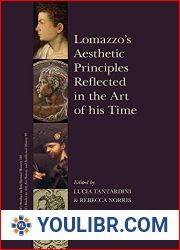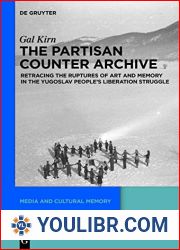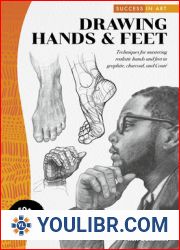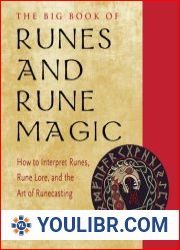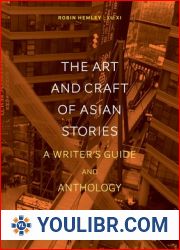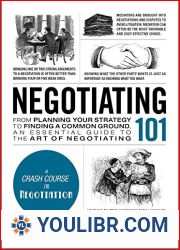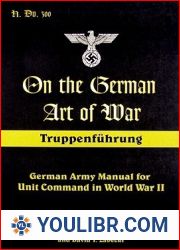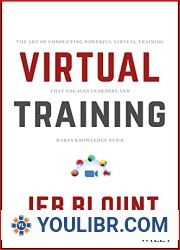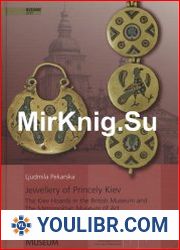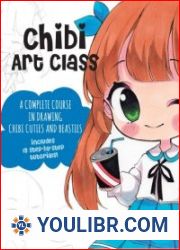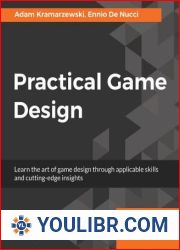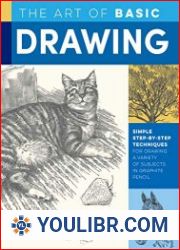
BOOKS - The Art of Being Governed: Everyday Politics in Late Imperial China

The Art of Being Governed: Everyday Politics in Late Imperial China
Author: Michael Szonyi
Year: November 28, 2017
Format: PDF
File size: PDF 16 MB
Language: English

Year: November 28, 2017
Format: PDF
File size: PDF 16 MB
Language: English

The Art of Being Governed: Everyday Politics in Late Imperial China In "The Art of Being Governed Michael Szonyi presents an innovative perspective on how ordinary people in Ming dynasty China (1368-1644) negotiated military and political obligations to the state. By exploring the complex strategies developed by families to manage their responsibilities, Szonyi offers a new interpretation of this critical period in Chinese history and a broader theory of politics. Using previously untapped sources such as lineage genealogies and internal family documents, he examines how soldiers and their families living on China's southeast coast minimized the costs and maximized the benefits of meeting government demands for manpower. Families Provided Soldiers to the Army During this time, families were required to provide soldiers to the army, and they had to develop elaborate rules to ensure their obligation was fulfilled while providing incentives for the soldier not to desert his post. These rules included setting up systems of rotation, where different members of the same family would serve in the army over time, allowing them to share the burden of military service. Additionally, families would often offer financial incentives or other rewards to encourage their soldiers to remain loyal and committed to their duties.
The Art of Being Governed: Everyday Politics in Late Imperial China In «The Art of Being Governed» Майкл Соньи представляет инновационный взгляд на то, как простые люди в Китае династии Мин (1368-1644) договаривались о военных и политических обязательствах перед государством. Исследуя сложные стратегии, разработанные семьями для управления своими обязанностями, Сони предлагает новую интерпретацию этого критического периода в истории Китая и более широкую теорию политики. Используя ранее неиспользованные источники, такие как родословные и внутренние семейные документы, он исследует, как солдаты и их семьи, живущие на юго-восточном побережье Китая, минимизировали расходы и максимизировали выгоды от удовлетворения потребностей правительства в рабочей силе. Семьи предоставляли солдат армии В течение этого времени семьи должны были предоставлять солдат армии, и они должны были разработать тщательно разработанные правила, чтобы гарантировать, что их обязательство было выполнено, в то же время обеспечивая стимулы для солдата не покидать свой пост. Эти правила включали создание систем ротации, где разные члены одной семьи со временем служили бы в армии, позволяя разделить бремя военной службы. Кроме того, семьи часто предлагают финансовые стимулы или другие вознаграждения, чтобы побудить своих солдат оставаться верными и преданными своим обязанностям.
The Art of Being Governed : Everyday Politics in Late Imperial China In « The Art of Being Governed » Michael Sonyi présente une vision innovante de la façon dont les gens ordinaires en Chine de la dynastie Ming (1368-1644) ont négocié des engagements militaires et politiques envers l'État. En explorant les stratégies complexes élaborées par les familles pour gérer leurs responsabilités, Sonia propose une nouvelle interprétation de cette période critique de l'histoire de la Chine et une théorie plus large de la politique. S'appuyant sur des sources auparavant inexploitées, telles que la lignée et les documents familiaux internes, il étudie comment les soldats et leurs familles vivant sur la côte sud-est de la Chine ont minimisé les coûts et maximisé les avantages de répondre aux besoins en main-d'œuvre du gouvernement. s familles fournissaient des soldats de l'armée Pendant ce temps, les familles devaient fournir des soldats de l'armée, et elles devaient élaborer des règles soigneusement conçues pour s'assurer que leur engagement était respecté, tout en offrant des incitations au soldat de ne pas quitter son poste. Ces règles comprenaient la mise en place de systèmes de rotation où différents membres de la même famille serviraient dans l'armée au fil du temps, ce qui permettrait de partager le fardeau du service militaire. De plus, les familles offrent souvent des incitations financières ou d'autres récompenses pour encourager leurs soldats à rester fidèles et dévoués à leurs responsabilités.
The Art of Being Governed: Everyday Politics in Late Imperial China In «The Art of Being Governed» Michael Sonyi presenta una visión innovadora de cómo la gente común en la China de la dinastía Ming (1368-1644) acordaron compromisos militares y políticos con el Estado. Investigando las complejas estrategias diseñadas por las familias para gestionar sus responsabilidades, Sonia propone una nueva interpretación de este periodo crítico en la historia de China y una teoría más amplia de la política. Utilizando fuentes no utilizadas anteriormente, como el pedigrí y los documentos familiares internos, investiga cómo los soldados y sus familias que viven en la costa sureste de China minimizaron los costos y maximizaron los beneficios de satisfacer las necesidades laborales del gobierno. familias proporcionaron soldados al ejército Durante este tiempo, las familias tuvieron que proporcionar soldados al ejército, y tuvieron que elaborar reglas cuidadosamente diseñadas para asegurar que su compromiso se cumpliera, al tiempo que proporcionaban incentivos para que el soldado no abandonara su puesto. Estas reglas incluían la creación de sistemas de rotación donde diferentes miembros de la misma familia servirían en el ejército con el tiempo, permitiendo compartir la carga del servicio militar. Además, las familias suelen ofrecer incentivos económicos u otras recompensas para alentar a sus soldados a permanecer fieles y dedicados a sus responsabilidades.
The Art of Being Governed: Everyday Politics in Late Imperial China In «The Art of Being Governed» Michael Sonia apresenta uma visão inovadora da forma como as pessoas comuns da dinastia Ming (1368-1644) negociaram compromissos militares e políticos com o Estado. Ao explorar estratégias complexas desenvolvidas pelas famílias para gerir suas responsabilidades, Sonia propõe uma nova interpretação deste período crítico na história da China e uma teoria mais ampla da política. Usando fontes não utilizadas anteriormente, como linhagens e documentos familiares internos, ele investiga como os soldados e suas famílias na costa sudeste da China minimizaram os gastos e maximizaram os benefícios de atender às necessidades de mão de obra do governo. Durante esse tempo, as famílias tinham que fornecer soldados do exército, e eles tinham que elaborar regras cuidadosamente desenvolvidas para garantir que sua obrigação havia sido cumprida, ao mesmo tempo que oferecia incentivos para que o soldado não deixasse o cargo. Estas regras incluíram a criação de sistemas de rotação, onde diferentes membros da mesma família estariam no exército ao longo do tempo, podendo dividir o fardo do serviço militar. Além disso, as famílias muitas vezes oferecem incentivos financeiros ou outras recompensas para encorajar seus soldados a se manterem fiéis e comprometidos com suas responsabilidades.
The Art of Being Governed: Everyday Politics in Late Imperial China In'The Art of Being Governed ', Michael Sonyi presenta una visione innovativa del modo in cui le persone comuni della dinastia Ming (1368-1644) hanno concordato impegni militari e politici verso lo Stato. Esplorando le complesse strategie sviluppate dalle famiglie per gestire le proprie responsabilità, Sonia offre una nuova interpretazione di questo periodo critico nella storia della Cina e una più ampia teoria politica. Utilizzando fonti non utilizzate in precedenza, come i documenti familiari interni e di famiglia, sta esplorando come i soldati e le loro famiglie che vivono sulla costa sud-orientale della Cina abbiano minimizzato i costi e massimizzato i benefici derivanti dalle esigenze di manodopera del governo. famiglie hanno fornito soldati esercito Durante questo tempo le famiglie hanno dovuto fornire soldati esercito, e hanno dovuto sviluppare regole attentamente elaborate per garantire che il loro impegno è stato rispettato, allo stesso tempo fornendo incentivi per il soldato di non lasciare il suo posto. Queste regole includevano la creazione di sistemi di rotazione in cui diversi membri della stessa famiglia avrebbero prestato servizio militare nel tempo, consentendo la condivisione del peso del servizio militare. Inoltre, le famiglie spesso offrono incentivi finanziari o altre ricompense per incoraggiare i loro soldati a rimanere fedeli e leali ai loro doveri.
The Art of Being Governed: Alltagspolitik im späten Kaiserreich China In „The Art of Being Governed“ präsentiert Michael Sonyi einen innovativen Blick darauf, wie sich gewöhnliche Menschen in China in der Ming-Dynastie (1368-1644) auf militärische und politische Verpflichtungen gegenüber dem Staat einigten. Soni erforscht die komplexen Strategien, die Familien entwickelt haben, um ihre Verantwortlichkeiten zu bewältigen, und bietet eine neue Interpretation dieser kritischen Periode in der chinesischen Geschichte und eine breitere Theorie der Politik. Mit bisher ungenutzten Quellen wie Stammbäumen und internen Familiendokumenten untersucht er, wie Soldaten und ihre Familien, die an der Südostküste Chinas leben, die Kosten minimieren und den Nutzen der Erfüllung des Arbeitskräftebedarfs der Regierung maximieren. Familien stellten Soldaten für die Armee zur Verfügung Während dieser Zeit mussten Familien Soldaten für die Armee zur Verfügung stellen und sie mussten sorgfältig ausgearbeitete Regeln entwickeln, um sicherzustellen, dass ihre Verpflichtung erfüllt wurde, während gleichzeitig Anreize für den Soldaten geschaffen wurden, seinen Posten nicht zu verlassen. Diese Regeln beinhalteten die Schaffung von Rotationssystemen, in denen verschiedene Mitglieder derselben Familie im Laufe der Zeit in der Armee dienen würden, so dass die t des Militärdienstes geteilt werden konnte. Darüber hinaus bieten Familien oft finanzielle Anreize oder andere Belohnungen, um ihre Soldaten zu ermutigen, ihren Pflichten treu und treu zu bleiben.
Sztuka bycia rządzonym: Codzienna polityka w późnych cesarskich Chinach W „Sztuka bycia rządzonym” Michael Sonyi przedstawia innowacyjne spojrzenie na to, jak zwykli ludzie z dynastii Ming Chiny (1368-1644) negocjował zobowiązania wojskowe i polityczne do państwa. Badając złożone strategie opracowane przez rodziny w celu zarządzania ich obowiązkami, Soni oferuje nową interpretację tego krytycznego okresu w chińskiej historii i szerszą teorię polityki. Wykorzystując wcześniej niewykorzystane źródła, takie jak linie krwi i wewnętrzne dokumenty rodzinne, bada, w jaki sposób żołnierze i ich rodziny mieszkające na południowo - wschodnim wybrzeżu Chin zminimalizowały koszty i zmaksymalizowały korzyści płynące z zaspokojenia potrzeb pracy rządu. Rodziny dostarczały żołnierzy armii W tym czasie rodziny musiały dostarczyć żołnierzy armii, i musieli opracować starannie opracowane zasady, aby zapewnić wywiązanie się z ich obowiązku, przy jednoczesnym zapewnieniu żołnierzowi zachęt do nieopuszczania stanowiska. Zasady te obejmowały tworzenie systemów rotacyjnych, w których różni członkowie tej samej rodziny z czasem służyliby w wojsku, umożliwiając podział ciężaru służby wojskowej. Ponadto rodziny często oferują zachęty finansowe lub inne nagrody, aby zachęcić swoich żołnierzy do pozostawania lojalnymi i oddanymi obowiązkom.
''
Yönetilme Sanatı: "Yönetilme Sanatı'nda Geç İmparatorluk Çin'inde Günlük Politika Michael Sonyi, Ming Hanedanlığı Çin'deki (1368-1644) sıradan insanların devlete karşı askeri ve politik yükümlülükleri nasıl müzakere ettiğine dair yenilikçi bir bakış sunuyor. Ailelerin sorumluluklarını yönetmek için geliştirdikleri karmaşık stratejileri araştıran Soni, Çin tarihindeki bu kritik dönemin yeni bir yorumunu ve daha geniş bir siyaset teorisi sunuyor. Kan hatları ve iç aile belgeleri gibi daha önce kullanılmayan kaynakları kullanarak, Çin'in güneydoğu kıyısında yaşayan askerlerin ve ailelerinin maliyetleri nasıl en aza indirdiğini ve hükümetin işgücü ihtiyaçlarını karşılamanın faydalarını en üst düzeye çıkardığını araştırıyor. Aileler Orduya Asker Sağladı Bu süre zarfında aileler orduya asker sağlamak zorunda kaldı, Ve yükümlülüklerinin yerine getirilmesini sağlamak için özenle hazırlanmış kurallar geliştirmek zorunda kaldılar, aynı zamanda askerin görevini bırakmaması için teşvikler sağladılar. Bu kurallar, aynı ailenin farklı üyelerinin zaman içinde orduda görev yapacağı ve askerlik yükünün paylaşılmasına izin veren rotasyon sistemlerinin oluşturulmasını içeriyordu. Buna ek olarak, aileler genellikle askerlerini sadık ve görevlerine bağlı kalmaya teşvik etmek için finansal teşvikler veya başka ödüller sunar.
فن الحكم: السياسة اليومية في أواخر الإمبراطورية الصينية في «فن الحكم» يقدم مايكل سوني نظرة مبتكرة على كيفية تفاوض الناس العاديين في سلالة مينغ الصينية (1368-1644) على الالتزامات العسكرية والسياسية تجاه الدولة. من خلال استكشاف الاستراتيجيات المعقدة التي طورتها العائلات لإدارة مسؤولياتها، تقدم سوني تفسيرًا جديدًا لهذه الفترة الحرجة في التاريخ الصيني ونظرية أوسع للسياسة. باستخدام مصادر لم يتم استغلالها سابقًا مثل سلالات الدم ووثائق الأسرة الداخلية، فإنه يستكشف كيف أن الجنود وعائلاتهم الذين يعيشون على الساحل الجنوبي الشرقي للصين يقللون من التكاليف ويزيدون من فوائد تلبية احتياجات الحكومة من العمالة. العائلات قدمت الجنود للجيش خلال هذا الوقت، كان على العائلات تقديم الجنود للجيش، وكان عليهم وضع قواعد مصاغة بعناية لضمان الوفاء بالتزامهم، وفي الوقت نفسه تقديم حوافز للجندي لعدم مغادرة منشوره. تضمنت هذه القواعد إنشاء أنظمة تناوب حيث سيخدم أفراد مختلفون من نفس الأسرة في الجيش بمرور الوقت، مما يسمح بتقاسم عبء الخدمة العسكرية. بالإضافة إلى ذلك، غالبًا ما تقدم العائلات حوافز مالية أو مكافآت أخرى لتشجيع جنودها على البقاء مخلصين ومخلصين لواجباتهم.
The Art of Being Governed: Everyday Politics In The Late Imperial China In 「The Art of Being Governed」 Michael Sonyi介紹了明代中國普通民眾如何談判對國家的軍事和政治義務的創新觀點(1368-1644)索尼(Soni)探索了家庭為管理職責而制定的復雜策略,對中國歷史上的這一關鍵時期以及更廣泛的政策理論提出了新的解釋。他利用以前未使用的來源,例如血統書和內部家庭文件,研究了居住在中國東南海岸的士兵及其家人如何最大限度地降低成本,並最大限度地提高滿足政府勞動力需求的收益。家庭提供了陸軍士兵在這段時間裏,家庭不得不提供陸軍士兵,他們必須制定精心設計的規則,以確保他們的義務得到履行,同時為士兵提供激勵不要離職。這些規則包括建立輪換制度,隨著時間的流逝,同一家庭的不同成員將在軍隊中服役,從而分擔服兵役的負擔。此外,家庭通常會提供經濟獎勵或其他獎勵,以鼓勵其士兵忠於自己的職責。







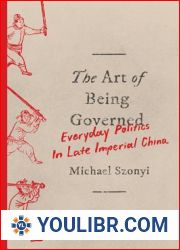
 49
49  2 TON
2 TON



